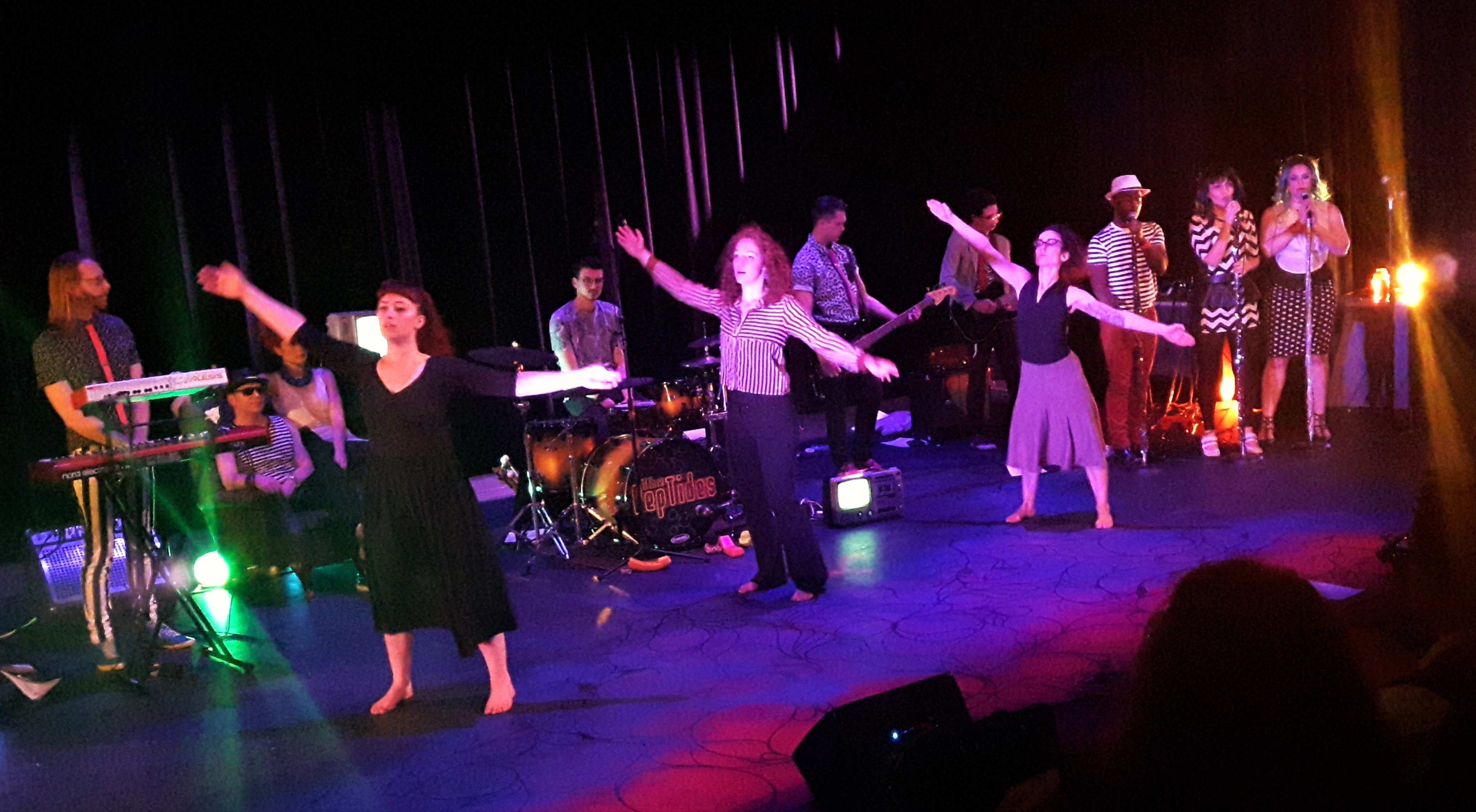PepTides React to Ghomeshi Effect


From a cheese and jam sandwich to Shakespeare’s foils, unusual pairings can reveal new things. This was the case on January 22nd, when Ottawa-based PepTides played the Gladstone theatre in support of The Ghomeshi Effect. which is a “verbatim” dance-theatre piece exploring sexual violence. It’s “verbatim” because the script was created based on interviews with survivors of sexual violence, and the words are presented as they were spoken.
This collaborative fundraiser came about because Amelia Griffin, choreographer for The Ghomeshi Effect, had recently worked on the PepTides new music video: 202 Washington DC. When The PepTides were asked if they wanted to participate in a fundraiser, keyboardist and manager Scott Irving said it wasn’t even a question. “It’s an important piece of theatre and we wanted to support it”.
The Peptides began their set with a dramatic entrance for their song “Homme Love Whore”, followed by a half-hour of feet-tapping, head-nodding, body shaking beats. (Well, torso shaking beats – most people remained seated). Following this introduction, interplay between the two productions began, with actors from The Ghomeshi Effect performing excerpts from the show and contemporary dance to the retro-soul-pop of the PepTides.
While music is no strange pairing to theatre (perhaps you’ve heard of Broadway?), there was something novel about the dynamic that presented itself with this performance. The PepTides were their usual energetic selves – you can tell they have fun when they perform. However, songs that would usually be light-hearted took on new meaning when contrasted with scenes from The Ghomeshi Effect. The dances featured strong physical dynamics, especially in the scenes with several actors. It was about more than the words; the stories were equally told by the expression of movement. It’s appropriate, because these are stories that unfold through the interaction of bodies.
It’s a complicated discussion. How do you speak about power and violence without making people uncomfortable or defensive? How does this reality of intimacy express itself, when the conversation is meant to be inclusive to a broader demographic? Firsthand accounts might only be only revealed to close friends and confidants, and so the Ghomeshi Effect offers a rare viewpoint: a truthful and anonymous accounts of sexual violence, and the impact that these experiences have on individuals and on society as a whole. Bringing these stories together into a single narrative reveals larger patterns about power.
Uncomfortable as it might be, it’s a stark reality. The statistics speak for themselves: in Canada, approximately 1/3 of women and 1/5 of men have experienced sexual assault, and that increases significantly for women who are Aboriginal or transgender. Only about 6% of all cases are reported to police. Stranger danger? Yeah, that’s not a thing; approximately 80% of incidents are inflicted by someone known to the survivor. It’s heavy stuff, but that’s why we feminists need dance parties. Ultimately, you can’t speak about power and its expressions without feeling something. However, this fundraiser only piqued my curiosity to see the theatre piece in its entirety.
As one of the vocalists said, “This is serious subject matter, but we’re still going to have a good time!”. On this front, certainly, the performance was well put-together. The upbeat music of The PepTides broke the tension between sets, and the audience was able to focus on the conversations happening throughout the performance with minimal heartache. By acknowledging and analyzing both the devastating and the uplifting elements of sex, the performance came across as a tribute to, and a necessary critique of, intimacy and modern dating.
Check out The Ghomeshi Effect at the Gladstone Theatre every night until Saturday, January 28th, or catch the reprise at Shenkmen Theatre on Thursday, February 2nd. Ticket price and purchasing information can be found here.
